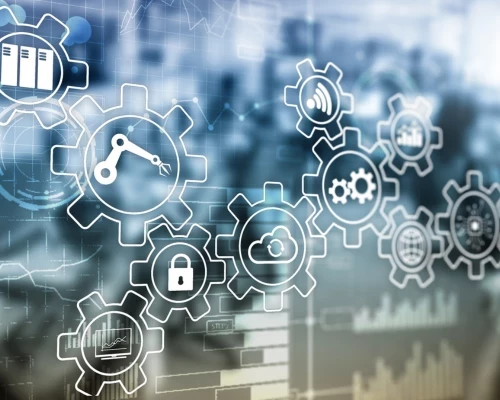3 Ways AI Transforms Manufacturing for a Greener Tomorrow
Insights on how AI can help the environment while supporting production goals.
Add bookmark
Contributed by: Emily Newton
As more manufacturers employ sustainability executives and task them with making meaningful, measurable changes within organizations, it is increasingly common to deploy artificial intelligence (AI) in the sector. Relying on it in manufacturing can reduce unnecessary resource usage and help people answer all-important questions. How can AI help the environment while supporting production goals? Which strategies should people pursue first? Which are the most practical metrics to track?
The conclusions differ based on a company’s budget, size, items produced, number of customers and employees, and other factors. However, seeing what other manufacturing businesses have done is an excellent way to make lasting progress.
How Can AI Help the Environment?
Many broad opportunities exist for leaders to apply AI in manufacturing and get environmental benefits. Some of the possible outcomes include:
-Reduce resource use
-Improve processes
-Cut emissions
-Improve supply chain results
-Rely on data-driven decision-making
-Increase operational visibility
Given the many potential advantages, people will get the best results by prioritizing one or two results first. Picking a focus like that increases the chances of spending money wisely and on the things that matter most. When everyone in a firm knows and understands the reasoning behind using artificial intelligence in manufacturing, getting them on board and motivating them will be easier.
1. Streamline and Customize the Returns Process
Many people are only beginning to realize what happens to all the online orders they receive and later return. The common assumption is that all returned items get made available for sale again, but that is not usually the case. These items often get discarded, which is certainly not ideal for the environment. However, companies such as America’s Remanufacturing Company exist to prepare those products for resale. Some manufacturers contract with that business to have it handle repairs when items break.
These same-unit repair services can occur within a day or two, meaning the fixed item is quickly back with the affected customer. They are most viable for high-value items, where repairing the product is much more cost-effective than buying a new one.
How can AI help the environment concerning returns? Some enterprises are using purpose-built platforms that rely on it to determine a customer’s likelihood of returning something. Manufacturers could then use the data to determine whether to offer a customer an additional package that provides free, unlimited returns or repairs within a specific period.
One AI-based product assesses each customer’s fraudulent returns risk and uses microparticle QR codes to track items once they leave manufacturing plants. This approach cuts return costs by up to 40% while making the returns process 30% more efficient.
Using AI in manufacturing this way could also help product makers identify legitimate issues. For example, the platform’s statistics may show increases in product breakage and returns after a company redesigned a washing machine’s door latch. That data could indicate the design decision caused unintended consequences. After all, if products break too easily and quickly, people will use them for shorter periods and consume more. Those trends generate more waste and could increase customer disappointment.
DOWNLOAD: SPECIAL REPORT: The Evolution of Connected Worker Technologies in The Industry 4.0 Environment
2. Improve Internal Processes
Whether related to quality control, production, design or packaging, manufacturers handle dozens of internal processes directly responsible for turning raw materials into products that reach customers. How can AI help the environment when it comes to process improvement? One major way is by enhancing visibility.
Algorithms can reveal which processes generate the most waste or use above-average resources. People using AI in manufacturing can then use that information as a jumping-off point for making meaningful improvements. Some businesses use digital twins — highly realistic simulations that allow manufacturers to try changes and study their effects before implementing them in real life.
Pharmaceutical manufacturer Sanofi uses AI-powered digital twins to analyze internal processes under development. It allows users to address bottlenecks that can slow drug development and hinder production.
People can also reap the environmental benefits by using digital twins to curb product defects, unnecessary steps or emissions-heavy supply chain processes. The technology enables someone to move away from typical trial-and-error-based experimentation and work with simulations before making permanent changes. Digital twin benefits include and span beyond sustainability, making them worth exploring.
3. Increase Energy-Related Outcomes
Many applications of AI in manufacturing center on energy reduction because many producers consume incredible amounts of power. But how can AI help the environment as manufacturers explore cleaner energy sources?
Some applications relate to smart meters. These connected devices increase grid sustainability and reduce costs. Although not all smart meters have artificial intelligence components, many firms are applying it to smart meter data.
In one example of how AI in manufacturing could help users make better energy-related choices, a Dutch company uses the technology to answer questions about when customers should plan their most energy-intensive activities or which renewable energy sources would have the biggest cost-related impacts. Although the business currently caters to households, it is easy to see why manufacturers could benefit from this model, too.
However, more than collecting energy data is required to bring success. People should also:
-Ensure the data is free from duplication and errors
-Assign specific people in the organization to analyze the insights
-Explain to stakeholders how energy data supports AI in manufacturing
-Set energy-related milestones and regularly check progress toward them
-Understand which manufacturing processes use the most energy
-Train people how to work with data and draw conclusions
-Confirm the kind of data a manufacturer has and its location
-Establish a data security plan using cybersecurity best practices
Going through those steps is an excellent way to get the best results when examining and improving energy usage trends. They will make it easier for people to trust and act upon the data.
Artificial Intelligence Supports Manufacturing Sustainability
Today’s manufacturing leaders have numerous options for deploying technology to meet sustainability goals. However, these examples show why artificial intelligence is worth investing in, regardless of a manufacturing company’s specific aims.
AI is diverse enough to adapt to many applications, increasing the chances it will meet users’ current and future requirements. However, manufacturing decision-makers, sustainability executives and others should always ask technology vendors for specific case studies of how clients in similar situations have successfully used a product. Those examples will help people find the most relevant possibilities and have the correct expectations.
WATCH: Scaling the Adoption of Generative AI Across Enterprises
Interested in becoming a contributor?
Want to see your work published on our portal? There are many ways to get involved with Oil & Gas IQ - you can submit an article or whitepaper, present a webinar, or more! And if online isn't your "thing", we also have opportunities for you to get involved as a speaker at one our global conferences. Read the guidelines here.
References:
What Happens to All the Stuff We Return? https://www.newyorker.com/magazine/2023/08/21/the-hidden-cost-of-free-returns
Blubirch transforms returns with AI, fostering sustainability in retail and manufacturing: https://timestech.in/blubirch-transforms-returns-with-ai-fostering-sustainability-in-retail-and-manufacturing/
Startup Leucine reaps $7M in series A funds to advance AI digital twin platform for manufacturing: https://www.fiercepharma.com/manufacturing/leucine-reaps-7m-series-money-fund-ai-digital-twin-platform-manufacturing
A Closer Look at Manufacturing Digital Twins in 2024: https://gesrepair.com/a-closer-look-at-manufacturing-digital-twins-in-2024/
What Are Smart Meters, and What Are Their Pros and Cons? https://revolutionized.com/smart-meters/
AI Unlocks Energy Savings And Revenue From Smart Meter Data: https://www.forbes.com/sites/sap/2023/06/06/ai-unlocks-energy-savings-and-revenue-from-smart-meter-data/






















